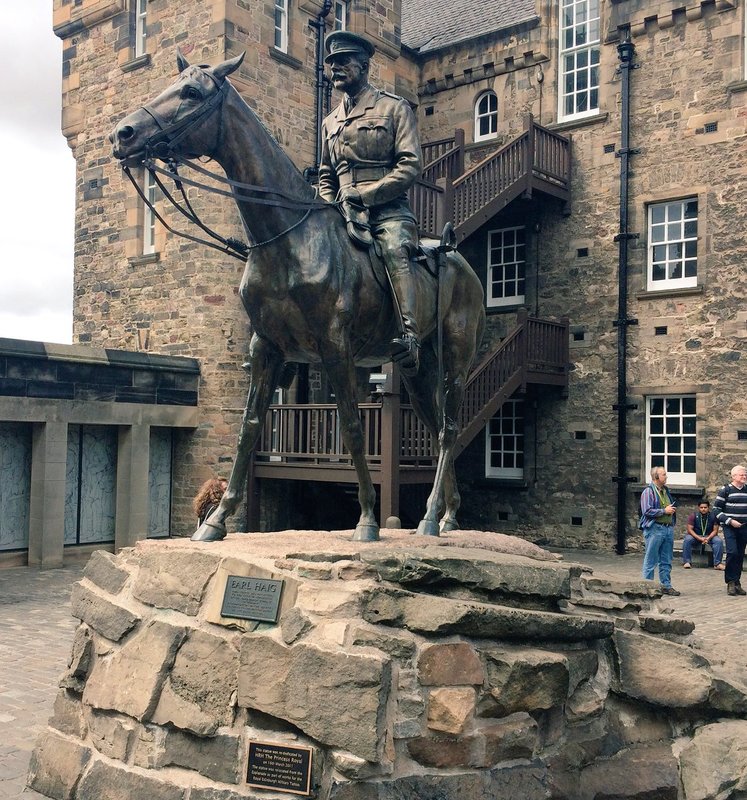|
Versus History Podcast #5 on Field Marshal Haig was - in my opinion - one of our very best. The fact that Douglas Haig’s reputation and performance in WW1 has received so much scrutiny from academic historians (and war poets) over the years highlights that this is a genuine historical controversy. In addition, select politicians and academic historians have cast a critical eye on the pedagogical methods used by some teachers when delivering the topic in classrooms. Therefore, Elliott and I felt that the stakes were high with this one. Professor Gary Sheffield - author of many acclaimed works on Haig - wishing us well before the debate served only to amplify the sense of occasion. The Podcast is there for all; feel free to let us know your thoughts, feedback and critique.
In any event, one key argument used to attack Haig’s performance and / or abilities during WW1 is his quote about the ongoing value of horses in warfare: I believe that the value of the horse and the opportunity of the horse in the future is likely to be as great as ever. Aeroplanes and tanks are only accessories to the men and the horse, and I feel sure that as time goes on you will find just as much use for the horse—the well bred horse—as you have ever done in the past. Haig was indeed a cavalry officer before WW1. Whilst researching for the Podcast, I encountered much academic literature and scholarly opinion which utilised this quote - and Haig’s long term trajectory towards Commander-in-Chief of the British Expeditionary Force - as the basis for a wider argument that Haig’s views on warfare were anachronistically rooted in his past experiences of the Boer War. However, the dawn of mechanised tank in 1916 did not result in the immediate transformation of the nature of warfare in the twentieth century. Far from it. The German Wehrmacht - known for the ferocity and incisiveness of their Panzer divisions during WW2 some 20 years later - relied heavily upon the horse between 1939 and 1945. Professor Timothy Snyder of Yale University made this very point in his book ‘Black Earth’; “...even the army of the famed Blitzkrieg moved chiefly by horsepower’ (p.306) The fact that one of the most devastating military operations of modern history - the Nazi Blitzkreig that laid waste to Europe - used the horse as the logistical spine of their transport operations, must - to some extent - serve to vindicate Haig in this regard. If I could wind back the clock to the debate itself, I would have made just this point. The fact that the tank made its debut ‘on his watch’ at the Battle of the Somme in 1916 should demonstrate that Haig was no luddite or technophobe. Given that the horse played a pivotal part in the Nazi war machines’ transport and logistics operations, this should serve to vindicate Haig’s comments about the future role of the animal in warfare. I am sure that Versus History will touch on a theme related to World War One again soon. Thanks for reading Patrick O’Shaughnessy Co-Editor Versus History (@historychappy)
2 Comments
Leave a Reply. |
Categories
All
Archives
April 2024
|

 RSS Feed
RSS Feed